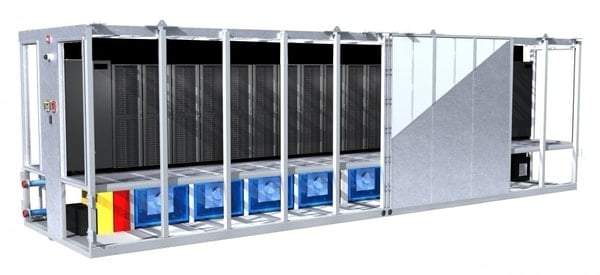
IPv4 Extinction: The Phase 4 ARIN Countdown Begins
April 30, 2014
What is the Future of Modular Data Centers?
May 5, 2014I like some good ol’ fashioned extortion just as much as the next guy, but this is ridiculous…
In case you haven’t been following the latest news on the FCC and Net Neutrality, things are basically up in the air. The only thing that’s for certain is that Comcast is definitely going to merge with Time Warner Cable to provide the US consumers with what is sure to be the worst company of all time and that the Internet might be ruined forever.
Ok, so let’s start from the beginning: it all started when a D.C. Circuit Court overturned the Open Internet rules, essentially nullifying any power the FCC had. They said that if the FCC wants to categorize the Internet as a telecommunications service, it can’t also classify it as an information service, which it did. What does that mean? Well, the information service thing is where the trouble starts because if you do that, then you allow ISPs to act as though they control the Internet (and the information on it) rather than just connecting you to it. As a telecommunications service, ISPs are regulated much like phone companies and other services.
The FCC was all, “We’ll fix this!” and then Comcast was all, “HA! No.” What is happening is now that Comcast and their Internet services are recognized as a telecommunications service, they can begin controlling the speed of their service as well as who gets access and how fast their access is. The FCC tried to fight back with new Net Neutrality proposals, but so far, all that can be agreed upon is that everything is terrible.
The FCC’s Net Neutrality Proposals
So here’s what’s happening now—the overturning of the Open Internet rules coupled with the merger of Comcast and TWC are giving birth to a swirling tornado of douchery. The FCC’s new Net Neutrality proposal gives ISPs the power to strike deals with content providers for better connections. Yeah, you know how much of a jerk that lone guy in the hybrid driving in the HOV lane is? He gets to drive in the HOV lane because he had the money to be able to purchase a hybrid car. Imagine that but with websites. Heck it’s already happened: Verizon and Comcast both have already struck deals with Netflix—and when I say “struck deals,” I mean Netflix was coerced into paying otherwise their service is practically unusable—to get a better connection and faster speeds. HOORAY CAPITALISM!
Comcast, Verizon and other large scale ISPs are pretty much working on a mob mentality while still being all, “We’re doing it for the customers!” They’re the modern day version of a mobster coming to your business and going, “Pay us to protect your business, because it’d be a shame that something would happen to it,” while holding a Molotov cocktail. Pay Comcast to speed up your connection, otherwise suffer the wrath of slow speeds. The FCC insists that there are other, practical uses for the so-called “fast lane”, like medical devices with remote monitoring, but let’s be real: for every case like that, there will be 100 cases where companies like Spotify pay so that they don’t buffer during streaming.
With an open Internet and net neutrality, everyone is on equal footing. Everyone starts from the same point and you work from there, which promotes innovation and growth. It’s like running in a race—everyone starts at the line, and then takes off. With these new regulations, it’s like standing at the starting line and then watching the guy next to you take off before the gun because he paid the referee $20 for a head start.
How does this affect you? If Netflix has to pay to get better connections, who do you think is going to fund that? You. And me. And everyone else who wants to binge-watch House of Cards.
It’s extortion at its finest. The FCC has until May 15th to figure everything out (and FCC Chairman Tom Wheeler has a big ace in the hole still to play), and we could end up with the ideal situation of pure net neutrality, but with the recent Netflix deals, it seems as though we’re shifting in the way the Internet will be accessed.

